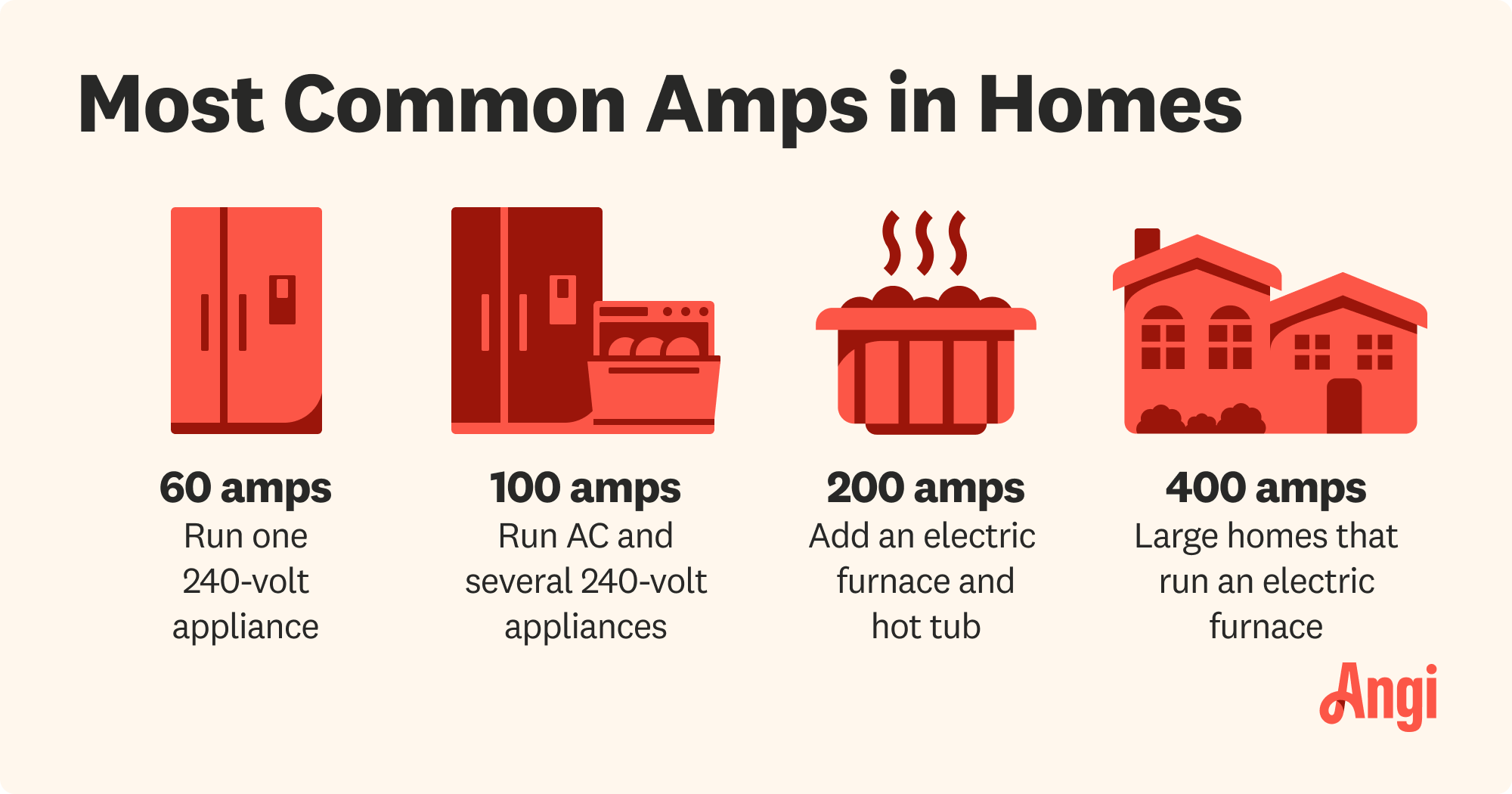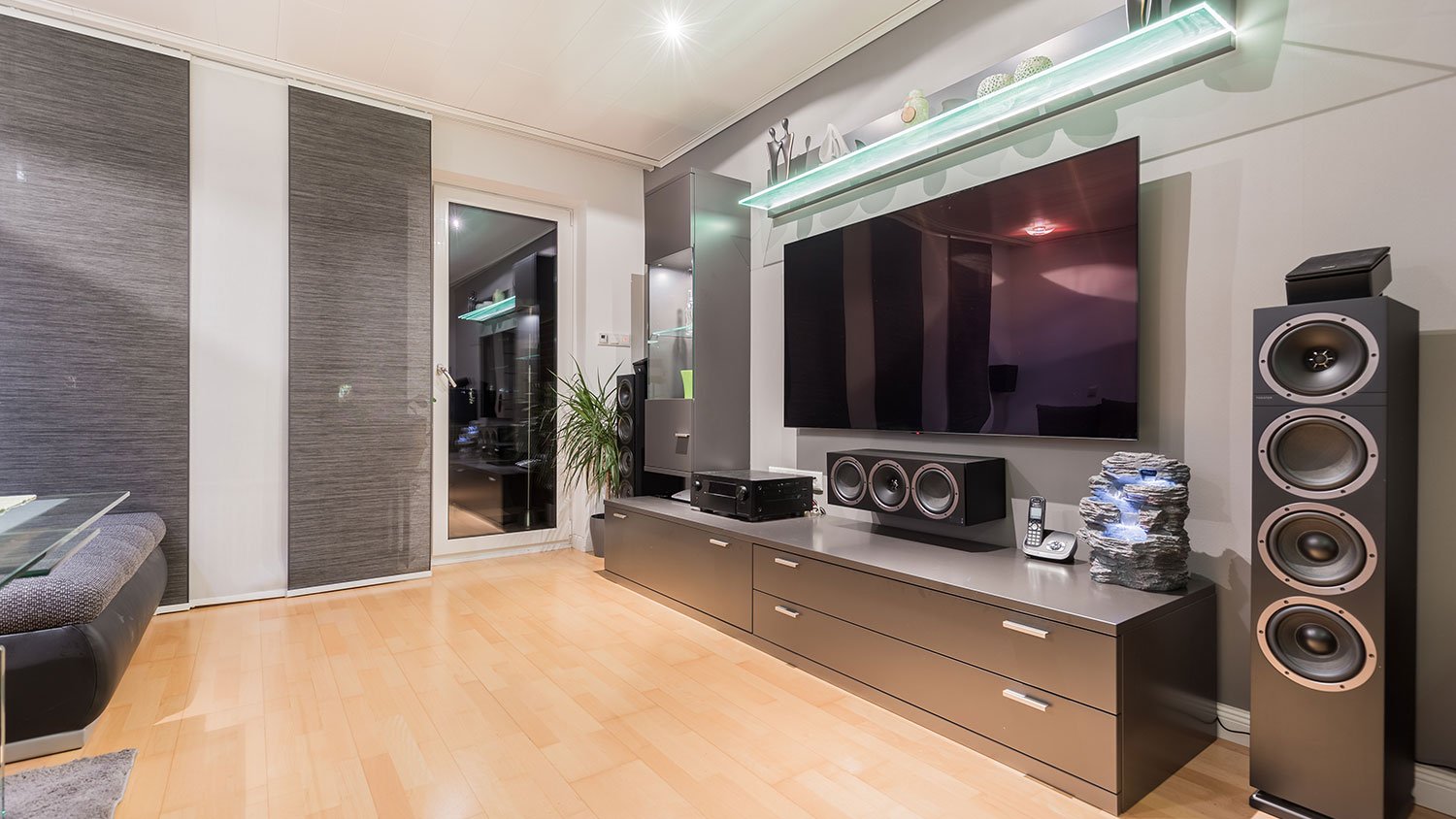
Installing a dedicated line in your home or garage is fairly straightforward, but may have a wide range of cost-affecting factors, like materials, labor, and necessary permits.
An upgrade to 200-amp service is a good idea if you have an older home or new appliances have increased your electrical demand


If you have an older home, it probably has a 60-watt or 100-watt amp service that can't handle your plans for a new air conditioner, appliance upgrade, entertainment room, or heated swimming pool.
Simply put, upgrading to 200-amp service lets you use more electricity.
A 200-amp service is upgraded by disconnecting the power supply to install a new 200-amp panel, new wiring, and a meter socket. Installation requires proper permits, a qualified electrician, and inspections. You will need to hire a local electrician to upgrade your home’s amperage because making adjustments to your electrical system is a dangerous task, requiring professional tools and experience.
This is a quality electrical company with very professional and well-trained technicians. They installed new switches, outlets and light fixtures in my 2nd floor, removing the knob and tube wiring and installing new grounded lines. I will be recommending them to all my friends and family.
Amps measure how much electricity your circuits can handle. If your appliances draw more power than your circuits can handle, your circuit breaker will cut power before something dangerous happens. The cost to upgrade to 200-amp service is between $750 and $2,000.
When choosing between a 100-amp electric panel versus 200-amp panel, keep in mind that the 200-amp option typically only costs $100 to $200 more than the 100-amp option.
As we rely more and more on electronic devices for entertainment and comfort, our household electrical loads grow. A home that was built more than 30 years ago probably maxes out at 100-amp service. The good news is that you can upgrade to 200-amp service relatively easily.


First, 200-amp service is actually the minimum recommended for modern homes. That means you're instantly making your home safer just by upgrading.
You may need to consider upgrading if any of these apply:
Your panel box is humming or buzzing
You have an outdated fuse box
Your circuit breakers constantly trip
Upgrading lets you enjoy higher usage and performance from your electric system. Keep in mind electric panels have a built-in safety limit of 20%, so with a 100-amp service, you're really only getting 80 amps. You'll finally get over that 100-amp barrier once you upgrade.
If you're adding new appliances to your home that will draw more electricity, you'll need to determine if your home can handle the extra load based on your current amp service. Your home may not be up to code once you add a new swimming pool, hot tub, sump pump, range, washing machine, or any other upgrade unless you also upgrade to 200-amp service.
Tripped breakers getting you frazzled? Burnt-out appliances piling up in the trash? You probably already know it’s time to bring your home's electrical system into the 21st century. Let's cover the good and bad of expanding your home's electrical system.
A safer home
No more tripped circuit breakers killing your power
Appliances are protected from tripped breakers/outages
Your home will be up to code
Materials and installation can cost hundreds or thousands
Not a DIY project
According to data from Angi customers, most wiring and panel projects (65.7%) involve upgrades to existing service. On the other hand, 34.3% of people need general electrical repairs, such as fixing blown fuses and flickering lights. If any of this sounds familiar, get in touch with an electrician for assistance.
While this project takes careful planning, it's fairly straightforward. You'll need tohire an electrician near you because working inside your home's electrical panel can be dangerous.
Mishandling even one step of this project could prove lethal. A 200-amp upgrade is a complex electrical wiring project with two parts. Your electrician will install a service wire and then add a new panel.
Here's a look at what's involved in upgrading to 200-amp service:
Obtain proper permits
Shut off power to your house
Have the utility company disconnect cables from your home
Complete electrical wiring
Complete panel installation
Have the work inspected
Have the utility company reconnect cables to your home
Remember that the inspector can't let the utility company reconnect your electricity until the work passes inspection.
From average costs to expert advice, get all the answers you need to get your job done.

Installing a dedicated line in your home or garage is fairly straightforward, but may have a wide range of cost-affecting factors, like materials, labor, and necessary permits.

How much does rewire house cost in Columbus? Learn the major factors that impact the price and how it can help increase your home's value.

How much does adding an electrical outlet cost in Columbus? Get details on average pricing, permit needs, and what affects the total cost.

Wiring your house for ethernet can provide high speed, reliable, and secure internet access. Here’s who can ethernet wire through your walls.

Flickering lights and breaker trips can be a sign that it’s time to replace a circuit breaker. Find out the cost, safety tips, and how to replace a circuit breaker.

Learn a new skill and find out how to wire a light switch (safely) in your own home. This is one project that’s sure to light up your day.